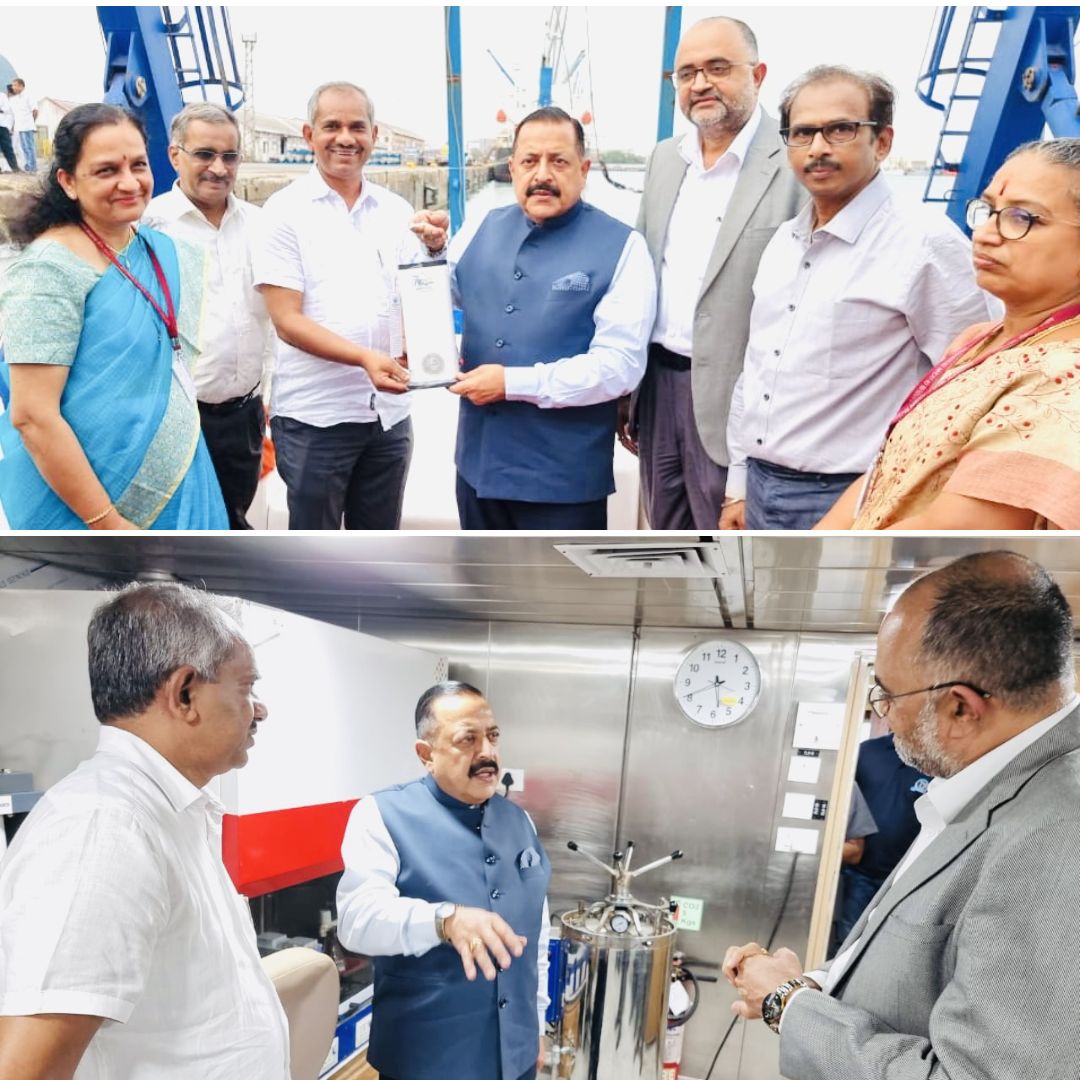
Image Credit- Twitter/ Jitendra Singh
Minister Jitendra Singh Launches India's First Saline Water LED Lantern 'Roshini', Lauds NIOT
Writer: Simran Jeet
She is a a dedicated and an optimistic person who believes in learning from experience.
Tamil Nadu, 14 Aug 2022 10:06 AM GMT
Editor : Shiva Chaudhary |
A post-graduate in Journalism and Mass Communication with relevant skills, specialising in content editing & writing. I believe in the precise dissemination of information based on facts to the public.
Creatives : Shiva Chaudhary
A post-graduate in Journalism and Mass Communication with relevant skills, specialising in content editing & writing. I believe in the precise dissemination of information based on facts to the public.
The minister unveiled the first-of-its-kind lantern during his visit to Sagar Anveshika, a coastal research vessel operated by the National Institute of Ocean Technology (NIOT) Chennai for marine research.
Union Minister of Earth Sciences Jitendra Singh, on Saturday (August 13), launched India's first saline water lantern, 'Roshini', which uses seawater to power Light Emitting Diode (LED) lamps.
The minister unveiled the first-of-its-kind lantern during his visit to Sagar Anveshika, a coastal research vessel operated by the National Institute of Ocean Technology (NIOT) Chennai for marine research, reported PIB.
What Is Saline Water Lantern?
Saline water lanterns use seawater as an electrolyte between specially designed electrodes to power LED lamps. The technology will help bring 'Ease of Living' to the poor and needy, especially the fishing community living along the 7,500-km-long coastal line of India.
Singh said Roshini Lamps, along with Power Ministry's schemes like Solar Study Lamps, will drive vibrant renewable energy programmes aimed at achieving energy security, energy access and reducing the carbon footprints of the national economy, reports The Print.
Another technology marvel by Indian scientists! Team NIOT #Chennai comes out with first-of-its-kind "Saline Water Lantern" which uses sea water to power the LED lamps. Ease of Living for needy, particularly fishing community living along the coastal line. pic.twitter.com/FIBDfRQOaz
— Dr Jitendra Singh (@DrJitendraSingh) August 13, 2022
Benefits Of 'Roshini' Lantern
The minister appreciated the NIOT team for inventing the Roshini Lamp, further advising them to transfer the technology to the industry to facilitate mass production of this multipurpose lamp which can be of immense help in disaster-prone rural and remote areas.
Singh pointed out that remote hinterlands where seawater is unavailable can also use this technology. In such regions, any saline or normal water mixed with the common salt can be used to power the lantern, which is cost-effective and very easy to operate.
The minister further reviewed the progress of NIOT's developed Low-Temperature Thermal Desalination (LTTD) technology which converts seawater to potable water. Three desalination plants based on the LTTD technology have been successfully designed and demonstrated at Kavaratti, Agati and Minicoy Islands of the Union Territory (UT) of Lakshadweep.
The LTTD technology is suitable for UT's islands, where the required temperature difference of about 15 degrees celsius between sea surface water and deep-sea water is found in the vicinity of Lakshadweep coasts only as of now.
Also Read: Visaka Industries Is Creating An Ecosystem Of Sustainability & Advocating It At The Forefront
 All section
All section













